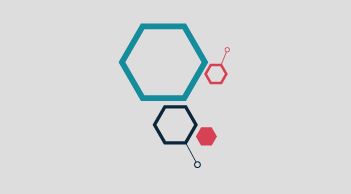The second half of a woman’s life is a period of significant changes in her body and overall well-being. Often, women find themselves at a crossroads where they experience changes that can raise questions and concerns. In order to recognize the importance of addressing these concerns and understanding the doubts harbored by this population, LLYC’s Healthcare and Advocacy division in Brazil conducted a survey with over 150 women.
While this survey does not constitute a scientific study in itself, it provides valuable insights into women’s perceptions of menopause and climacteric, two life stages that are frequently overlooked. These findings not only reflect the experiences and concerns of women in this crucial stage but also drive the conversation and awareness about a topic that has often been neglected in women’s health. The lack of knowledge and understanding about menopause and climacteric stands out as a significant challenge, and this survey seeks to highlight the need to provide information and support to women as they go through these life changes.
Primary Concerns and Lack of Knowledge
The first factor to highlight is the importance of women’s representation and concerns during menopause and climacteric. Among the main concerns identified are weight changes, decreased libido, and hot flashes, commonly known as “hot flushes.” Furthermore, this research emphasizes the impacts on mental health, an increasingly relevant aspect deserving deeper discussion.
The survey was based on the responses of 151 women aged between 35 and 65 years. Although it cannot be considered a full-fledged scientific study, its value lies in its ability to foster dialogue on crucial issues. One of the highlights is the lack of knowledge about what menopause and climacteric actually entail. Nearly 50% of respondents claim to know the difference between the two terms, while 30.5% have a general idea, and 21.2% have no knowledge about them. This lack of clarity can hinder the identification of symptoms, which number over 70, and the search for specific care, leaving women unprepared for menopause.
A survey by the Brazilian Society of Climacteric (Sobrac) in January 2022, conducted with 1,500 women aged 45 to 65, showed that only 22.3% of respondents received recommendations from their doctors to use hormonal therapy to alleviate symptoms.
Among the women who responded to LLYC’s perception survey and have not yet reached menopause, 47.9% stated that they would discuss the use of hormonal treatment with their doctor, and 39.7% would use it without a doubt. The rates among women who are already in menopause or climacteric are similar: 40% and 43.1%, respectively.
The Importance of Information
When asked about the therapies they use to treat symptoms, hormonal therapy ranked fourth, behind physical activity, diet, and lack of specific care.
Access to accurate information and education are highlighted as crucial elements for the well-being of women in this life stage. While the topic of menopause has often been overlooked, an article published in The New York Times in February 2023, titled “Women Have Been Misled About Menopause,” sheds light on the lack of education and support for women in this phase of life. The article highlights that 44% of women in the United States report their symptoms to their doctors, but most feel uncomfortable discussing the issue and, in many cases, do not identify the symptoms as manifestations of menopause. This landscape contrasts with the LLYC study, where 97.4% of respondents feel comfortable openly discussing their symptoms and clarifying their doubts with a specialist. Despite this encouraging data, menopause remains a taboo topic in society.
Sources of Information: Impact on Social Media and Society
The survey highlights the importance of a close relationship with healthcare professionals to obtain information about menopause and climacteric. Among the respondents, 106 out of 151 women selected a specialist doctor as their primary source of information. Additionally, friends and family were also mentioned as valuable sources of guidance, while traditional media ranked third.
Regarding online information searches, Google leads as the primary source of information about menopause. Among the searches performed on the platform using the keyword “menopause,” the top three results relate to hormonal treatments.
Social media, especially Instagram and TikTok, have emerged as key platforms for changing perceptions about menopause and climacteric. While these platforms highlight “real women” and their life experiences, traditional media often focus on technical issues and give prominence to “famous women.”
In Numbers
On Instagram, in Portuguese, there are over 620,000 mentions of the term “menopause” and over 150,000 related to “climacteric.” The content covers a variety of topics, including tips, exercises, diets, and more, all aimed at normalizing a topic that is still taboo for many women. According to the first Menopause and its Stages Study conducted in 2022 by Essity, a global hygiene and health company, 48% of the 2,000 Brazilian women surveyed believe menopause is related to old age. Furthermore, 55% do not like to talk about the “deterioration” of their bodies. It’s no surprise that in the LLYC study, “aging,” “old age,” and “age” are some of the most mentioned words by participants.
However, on the platform, which is the third most used by Brazilians, with 113.5 million users according to a February 2023 report by We Are Social and Meltwater, there is no shortage of examples of content creators trying to redefine this natural phase for all women. One example is the costume designer Wladia Goes, who shares her daily life with humor and describes herself as “Beautiful Forever, Perfect Never” to her 151,000 followers.
This has been the trend in how the conversation has unfolded on social media, with an emphasis on Instagram and TikTok, stimulating a change in perception about women in the menopause and climacteric stage. While social media features content from “real women” and their life experiences, traditional media, in general, continue to focus on technical issues and highlight the experiences of “famous women.”
In an exceptional instance, the topic of menopause gained prominence in one of the Rede Globo telenovelas, Brazil’s main television network. The telenovela “Vai na Fé” featured a cast mostly composed of Black or brown-skinned actors, and one of the characters portrayed a 40-year-old Brazilian woman experiencing menopause symptoms while dealing with common challenges faced by millions of women.
Global Awareness and Advances in Treatment
Awareness of menopause has gained global prominence, and since 2009, the International Menopause Society (IMS) and the World Health Organization (WHO) have designated October as the World Menopause Awareness Month. While in Brazil, only in 2023 did the Federal Senate begin to discuss Bill No. 3933/23, which proposes to provide treatment for climacteric and menopause through the Unified Health System (SUS). In other countries, private sector companies already offer corporate benefits that include certified menopause specialists’ careand coverage for high-cost hormonal treatments.
These initiatives are supported by data on the economic impact of menopause, as estimated by the Mayo Clinic Women’s Health study in the United States, where work absences and reduced working hours cost the country $1.8 billion annually, and medical expenses related to menopause reach $26.6 billion. These facts underscore the need for a more serious and considerate approach to women’s health in this stage, as well as the adaptation of a system that has historically been primarily oriented toward men’s health while dealing with common challenges.
Giuliana GregoriDirectora de Healthcare y Advocacy LLYC Brasil.
Caio WagnerConsultor Senior de Healthcare y Advocacy LLYC Brasil.




